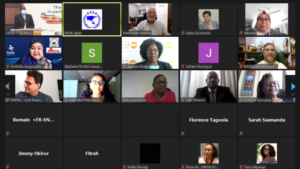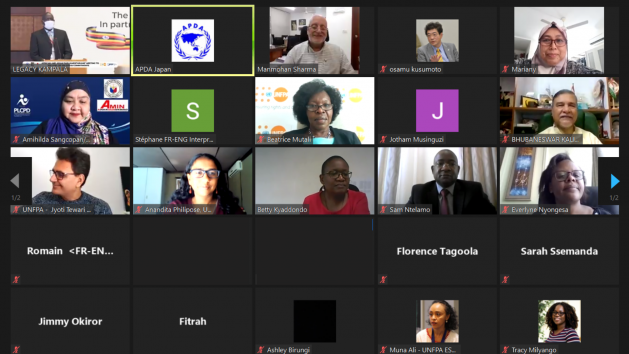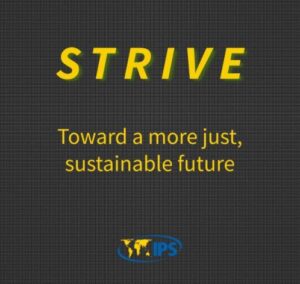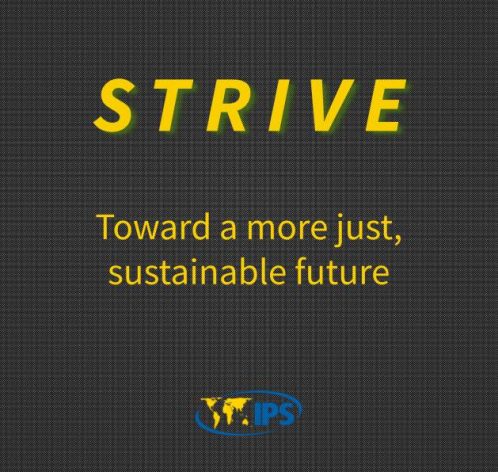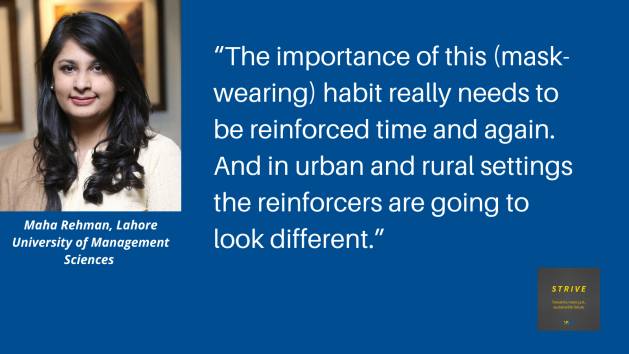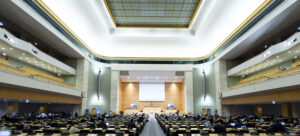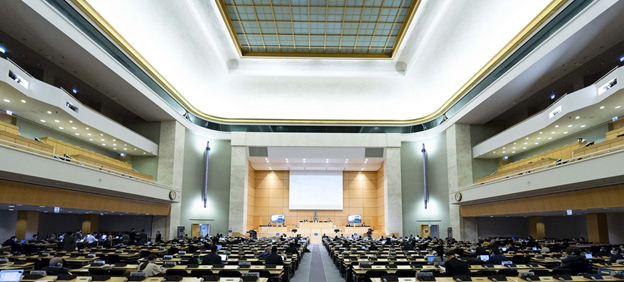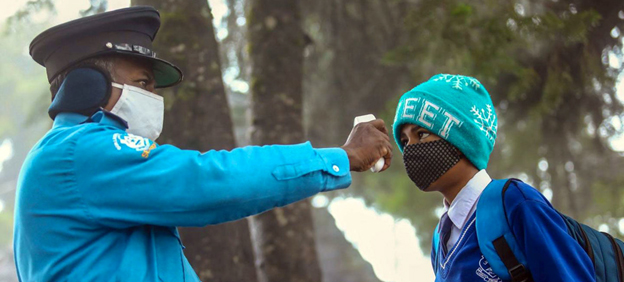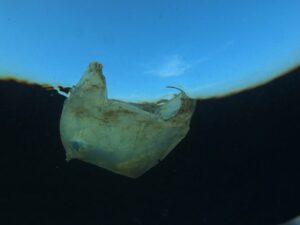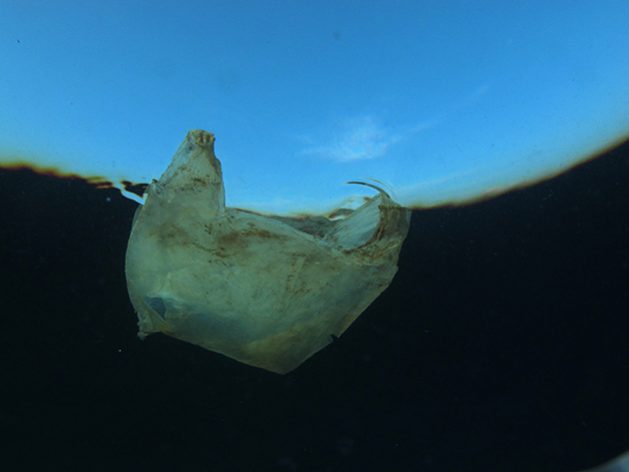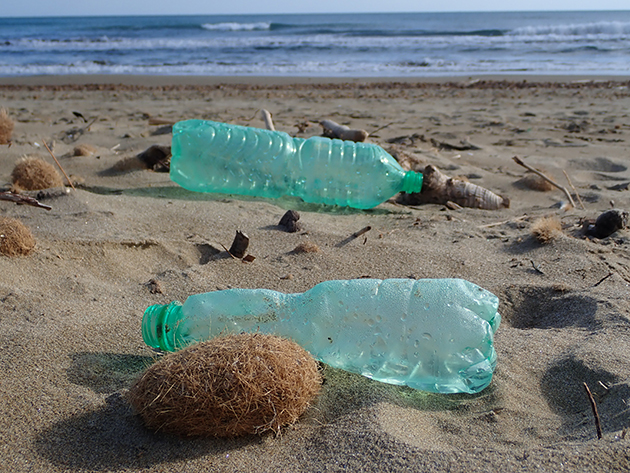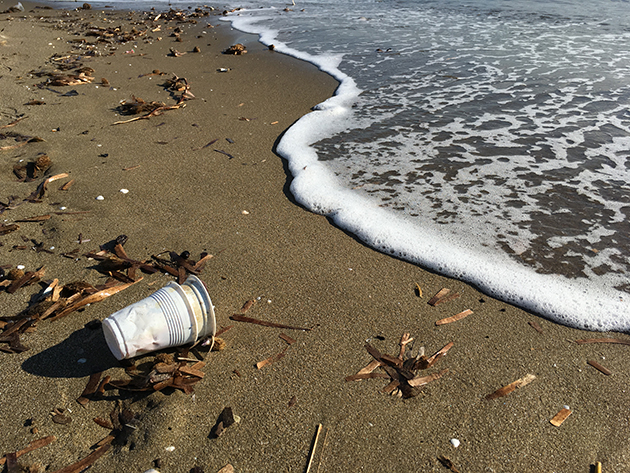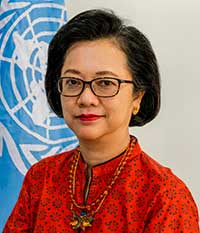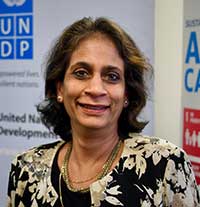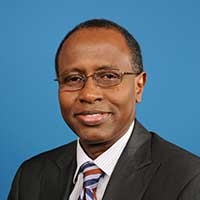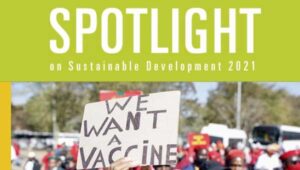
Civil Society, Economy & Trade, Education, Gender, Global, Headlines, Health, Humanitarian Emergencies, Poverty & SDGs, TerraViva United Nations, Women & Economy
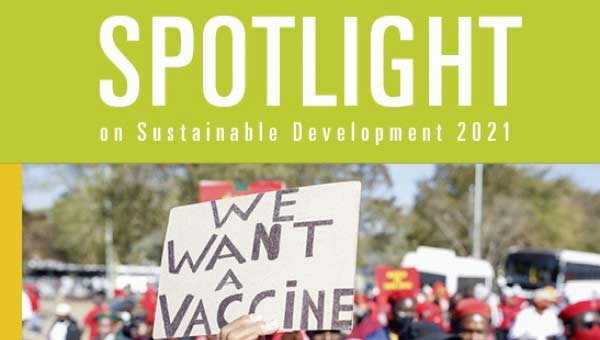
Credit: Global Policy Forum
– Policy responses to the COVID-19 pandemic and resulting economic crisis have exacerbated rather than reduced global inequalities. On the one hand, the net wealth of billionaires has risen to record levels since the outbreak of the pandemic (increasing by more than US$ 5 trillion to US$ 13.1 trillion from 2020 to 2021), on the other hand, the number of people living in extreme poverty has also increased massively (by approx. 100 million to 732 million in 2020).
These contrasts alone show that something is fundamentally wrong in the world.
In response to the disastrous effects of the pandemic, there was much talk of solidarity with regard to health support, including access to vaccines. But the brutal national competition for vaccines shows that solidarity is embraced by many world leaders merely as a rhetorical flourish.
The World Health Organization (WHO) made an early appeal to countries to agree on a coordinated distribution of vaccines, with available doses distributed fairly according to the size of each country’s population. This has not happened.
By the end of August 2021, more than 60 percent of the people in high-income countries had received at least one dose of COVID-19 vaccine, but less than 2 percent have done so in low-income countries.
The European Commission, the USA, the UK, and numerous other countries have signed bilateral COVID-19 Vaccine Agreements with pharmaceutical producers to secure vaccine quotas. By the end of August 2021, more than 400 agreements were concluded, securing over 18 billion doses of vaccine.
The European Commission has so far negotiated supply agreements for 4.3 billion doses of vaccine, equivalent to 8 vaccine doses per capita of the EU population. The UK could vaccinate its population 9 times with the contracted doses, the USA 10 times and Canada as many as 16 times.
Exacerbating the problem for many countries in the global South is the enormous cost of vaccines. The producers do not charge standard prices, but vary their prices depending on the quantity purchased and the bargaining power of the purchaser.
Occasionally, they grant preferential terms to rich countries, while countries in the global South sometimes have to pay higher prices. For example, the European Commission received a batch of AstraZeneca vaccine for US$ 2.19, while Argentina had to pay US$ 4.00 and the Philippines US$ 5.00. Botswana had to pay US$ 14.44 million for 500,000 doses of Moderna vaccine, or US$ 28.88 per dose, while the USA got Moderna’s vaccine at almost half the price (US$ 15.00).
While the vaccine pharmaceutical oligopoly makes exorbitant profits, countries of the global South are confronted with falling government revenues and rising debt burdens. The situation will worsen as regular vaccine boosters become necessary in the coming years.
What is tantamount to a license to print money for the pharmaceutical companies is a massive burden on public budgets. In view of this dramatic disparity, the promise to “leave no one behind” of the 2030 Agenda for Sustainable Development remains an empty slogan.
Insufficient responses to the global health crisis
As an immediate response to the global health crisis, the People’s Vaccine Alliance has formulated “5 steps to end vaccine apartheid“. These are in line with the demands derived from the analyses in the Spotlight Report 2021.
Increasing global vaccine production capacity, lowering market prices, and substantially increasing public financial support are vital, especially for the poor and disadvantaged people in the global South.
One way to overcome the vaccine shortage is to accelerate technology transfer. In May 2020, WHO established the COVID-19 Technology Access Pool (C-TAP), designed to pool voluntary licenses, research and regulatory data. But most countries with large vaccine production capacity, such as the USA, Germany, China and India, do not support the initiative. Thus, it has so far remained without any noticeable impact.
Faced with scarce global production capacity, India, South Africa, Kenya and Eswatini applied for a waiver under the TRIPS Agreement of the WTO to temporarily remove patent protection for COVID-19-related vaccines, medicines and devices.
The TRIPS waiver is intended to enable manufacturers in the global South in particular to produce medicines and vaccines more quickly and at lower cost. More than 100 countries support this initiative, including the USA as of May 2021.
The EU, the UK, Switzerland and the pharmaceutical companies and lobby groups based in these countries are particularly opposed and have so far blocked an agreement.
In this context, the more fundamental question arises as to whether medicines vital to realize the human right to health should be patented at all. Should they not in principle be considered global public goods, especially when, as in the case of the COVID-19 vaccines, billions of dollars of public money have gone into research and development?
In another initiative, the WHO and several partners—including France, the EU and the Bill & Melinda Gates Foundation –launched the Access to COVID-19 Tools (ACT) Accelerator and its COVAX initiative.
This has shifted the centre of the global COVID-19 response from WHO to a multi-stakeholder initiative with its own governance and decision-making structure, thereby further weakening WHO’s role in the global health architecture.
But with the unilateral approach of the rich countries to vaccine procurement, COVAX has failed in its claim to serve a global coordination function. Its primary task is now to provide COVID-19 vaccines to 92 low- and middle-income countries with the objective to provide at least 2 billion COVID-19 vaccine doses by the end of 2021.
By 14 September 2021, just 270 million doses have been delivered. To date, COVAX has received pledges of US$ 9.825 billion, nowhere near enough to provide sufficient vaccines for about 4 billion people in the 92 countries.
The COVID-19 pandemic has painfully demonstrated the absence of a functioning global health system. This reality has led to the proposal to create a Pandemic Treaty – a legally binding framework and improved global governance structures for pandemic preparedness and response.
Whether it can actually overcome structural weaknesses of the global health architecture, such as the underfunding of the WHO, is very unclear. Depending on its design, it could lead to an actual strengthening of the WHO, or to its further weakening by outsourcing pandemic preparedness and response to multi-stakeholder bodies with limited public accountability.
More transformational steps are needed
Beyond responding to the global health crisis, far more fundamental transformational steps are needed.
An essential aspect of an agenda for change is the shift toward a rights-based economy and a concept of human rights that forms the basis of our vision of economic justice.
To make this systemic shift happen, the trend towards privatization, outsourcing and systematic dismantling of public services must be reversed.
To combat rising inequality and build a socially just, inclusive post-COVID world, everyone must have equitable access to public services, which must be reclaimed as public goods and run in the common interest, not for profit.
UN Secretary-General António Guterres has repeatedly emphasized that human rights must guide all COVID-19 response and recovery measures. This should also mean strengthening the rights of those on the frontlines of the COVID-19 crisis.
First and foremost, that means the millions of workers in the healthcare sector, 70 percent of them women. Most of them experience poor work conditions, low wages and job insecurity.
The situation is similar in the education sector. Research by Education International shows that even before the COVID-19 pandemic, teachers’ workloads have steadily worsened, while salaries have remained the same or even decreased.
The situation has continued to deteriorate as a result of the pandemic. The global teacher shortage, which the UN estimated at 69 million even before the pandemic, will continue to grow so long as teaching remains to be “an overworked, undervalued, and underpaid profession”.
A basic precondition for the adequate provision of public goods and services is that States have sufficient resources. To prevent the COVID-19 pandemic being followed by a global debt and austerity pandemic, governments must be enabled to expand their fiscal space and to implement alternatives to neoliberal austerity policies.
This includes implementing a progressive tax reform, which prioritizes taxes on wealth and high earners.
Over the past year, many UN officials, human rights activists and civil society groups (like in the Spotlight Report 2020) have demanded that the resources of the COVID-19 recovery and economic stimulus packages should be used proactively to promote human rights and the implementation of the SDGs.
During that time, initial studies show that this is rarely the case. A report of the Financial Transparency Coalition that tracked fiscal and social protection recovery measures in nine countries of the global South found that in eight of them a total of 63 percent of announced COVID-19 funds went to large corporations, rather than small and medium enterprises or social protection measures.
Particularly poorer countries, some of which were already facing massive budget shortfalls before the pandemic, need substantial external support to finance additional healthcare and social spending and measures to overcome the economic recession.
In this regard, the general allocation of Special Drawing Rights (SDRs) equivalent to US$ 650 billion in August 2021 – the largest distribution ever made by the IMF – has been heralded as a major achievement. However, its distribution will not benefit the countries most in need without rechanneling measures and again illustrates existing imbalances in the global economic architecture.
Only if the world collectively embarks on the path toward transformational policies is there a chance to reduce global inequalities, protect our shared planet and make the proclaimed goal of solidarity a political and institutional reality.
Jens Martens is Director, Global Policy Forum, Bonn, Germany
The Spotlight Report is published by the Arab NGO Network for Development (ANND), the Center for Economic and Social Rights (CESR), Development Alternatives with Women for a New Era (DAWN), Global Policy Forum (GPF), Public Services International (PSI), Social Watch, Society for International Development (SID), and Third World Network (TWN), supported by the Friedrich Ebert Stiftung.
The report will be published on 17 September 2021, 9am EDT and will be available at www.2030spotlight.org

